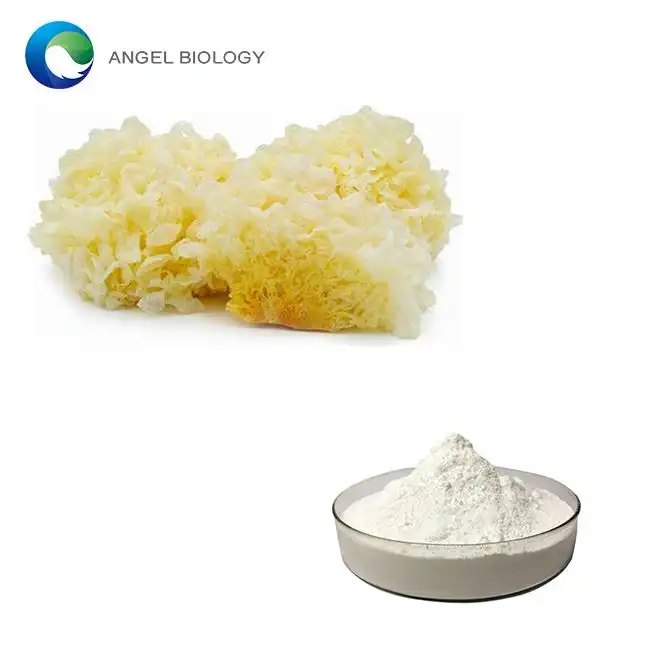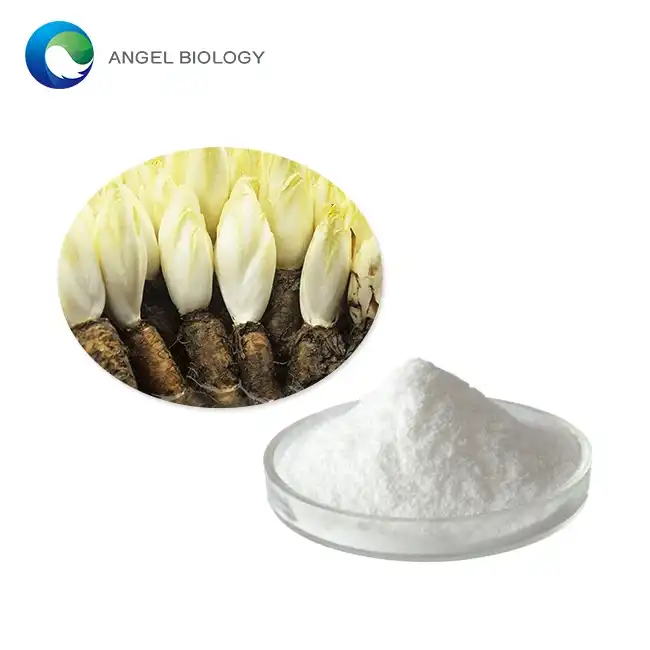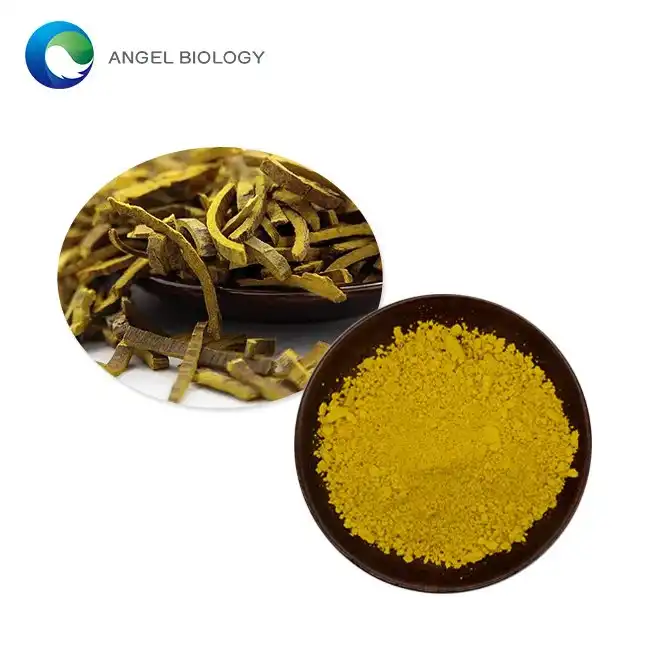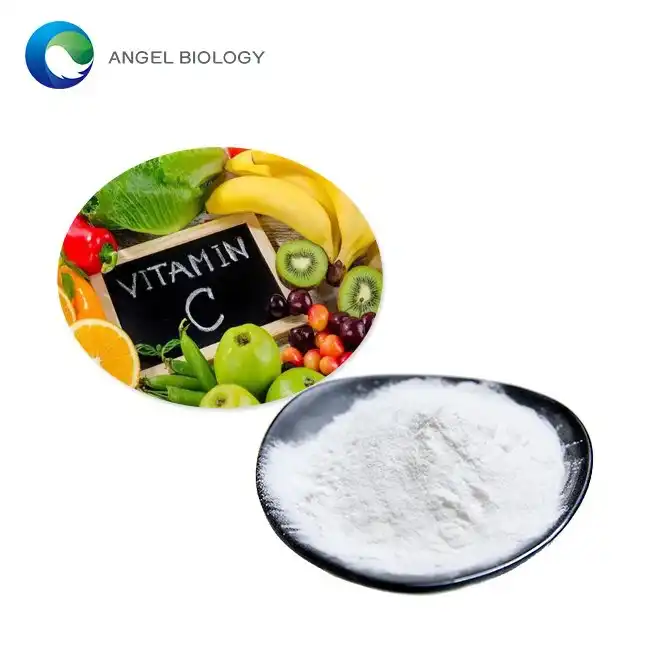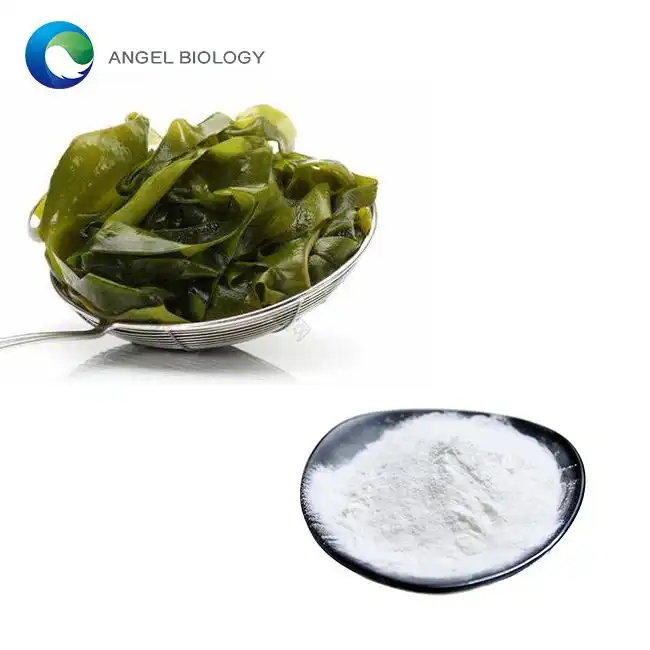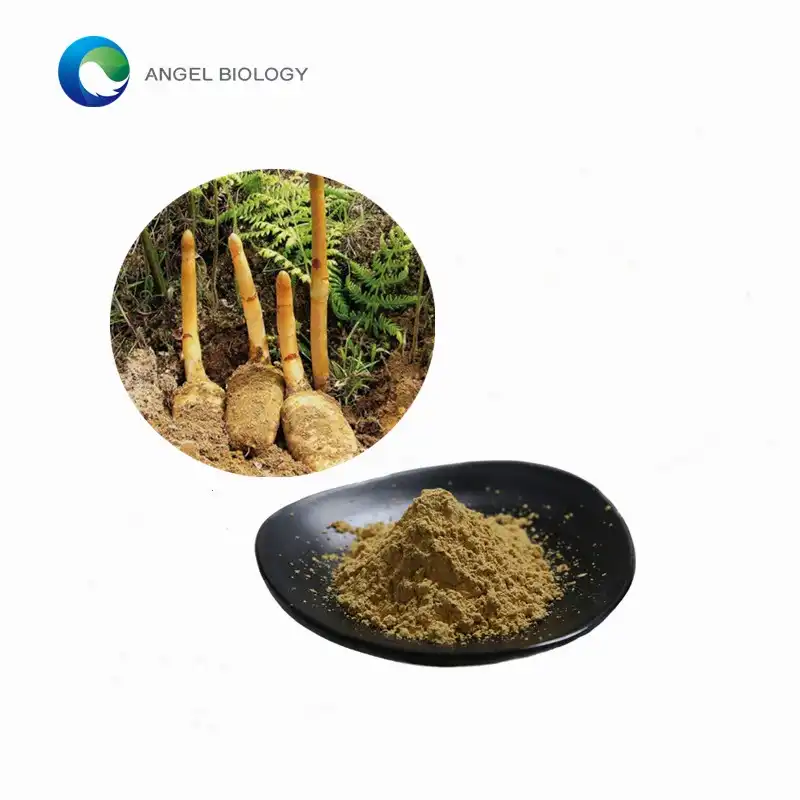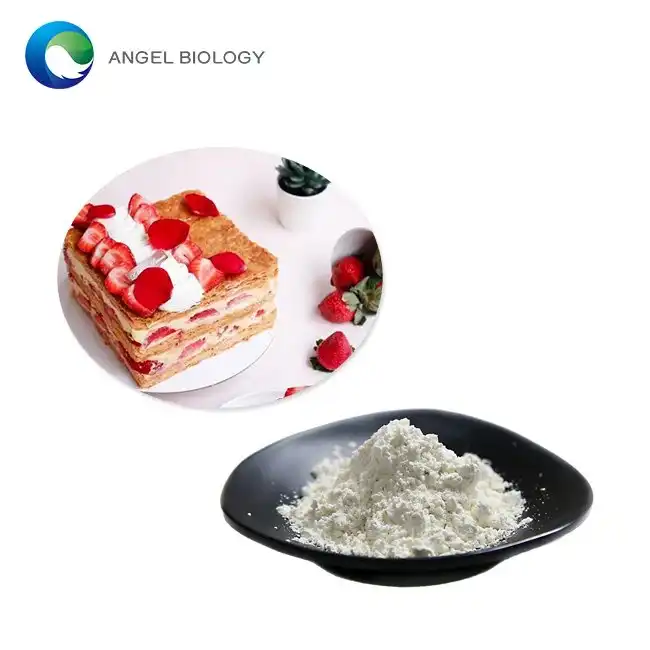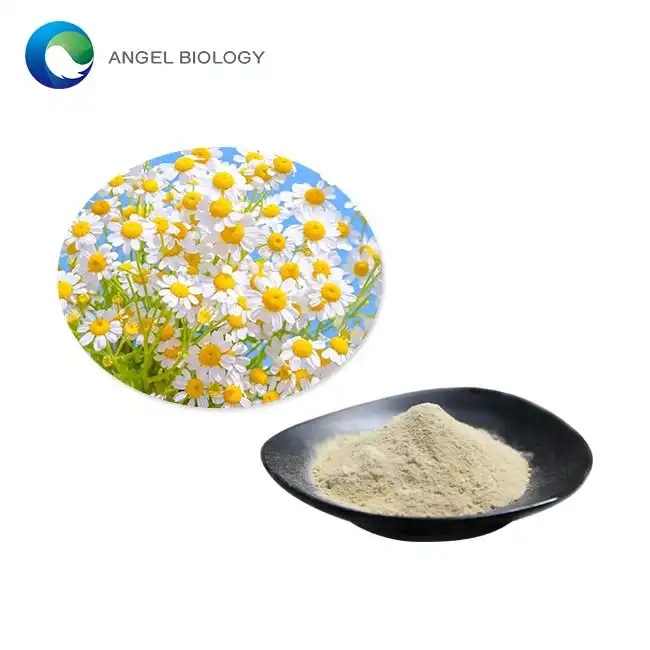Is Arbutin Powder the Secret to Brighter, Even-Toned Skin?
In the quest for radiant, even-toned skin, many have turned to various skincare ingredients and treatments. Among these, arbutin powder has emerged as a potential game-changer. This natural compound, derived from bearberry plants, has gained popularity for its skin-brightening properties and ability to address hyperpigmentation. But is arbutin powder truly the secret to achieving that coveted glow? Let's delve into the science behind this ingredient and explore its benefits for your skin.
How Does Alpha Arbutin Work to Inhibit Melanin Production?
Alpha arbutin, the most potent form of arbutin, is renowned for its ability to inhibit melanin production. Melanin is the pigment responsible for skin color and the formation of dark spots. The mechanism by which alpha arbutin works is fascinating and multifaceted:
dark spots. The mechanism by which alpha arbutin works is fascinating and multifaceted:
- Tyrosinase Inhibition: Alpha arbutin acts as a competitive inhibitor of tyrosinase, the enzyme crucial for melanin synthesis. By binding to tyrosinase, it prevents the enzyme from catalyzing the production of melanin.
- Melanosome Maturation: Beyond enzyme inhibition, alpha arbutin also slows the maturation of melanosomes, the organelles where melanin is synthesized and stored.
- Controlled Release: The glycosidic bond in alpha arbutin allows for a slow, controlled release of hydroquinone, ensuring a gentle yet effective brightening action.
This dual-action approach makes alpha arbutin a potent skin-brightening agent. Unlike some harsh skin-lightening ingredients, alpha arbutin doesn't bleach the skin. Instead, it works to reduce excess pigmentation, resulting in a more even skin tone without compromising your natural coloration.
Achieving a Radiant Glow: The Brightening Benefits of Arbutin Powder
The benefits of incorporating arbutin powder into your skincare routine extend beyond mere pigment reduction. Here's how this powerful ingredient can help you achieve that coveted radiant glow:
- Even Skin Tone: By inhibiting melanin production, arbutin helps fade dark spots, sun spots, and areas of hyperpigmentation, resulting in a more uniform complexion.
- Brightening Effect: Regular use of arbutin can lead to an overall brighter appearance, giving your skin a healthy, luminous glow.
- Anti-Aging Properties: Arbutin's antioxidant properties help protect the skin from free radical damage, potentially slowing the appearance of fine lines and wrinkles.
- Gentle Action: Unlike some harsh skin-lightening agents, arbutin works gradually and gently, reducing the risk of skin irritation.
- Preventive Care: Arbutin can help prevent the formation of new dark spots, especially when used in conjunction with sun protection.
The cumulative effect of these benefits is skin that not only looks brighter and more even-toned but also healthier and more youthful. It's important to note that while results can be seen relatively quickly, consistent use over time yields the most dramatic improvements.
Is Arbutin Safe for All Skin Types, Including Sensitive Skin?
One of the most appealing aspects of arbutin powder is its suitability for a wide range of skin types. Unlike some other skin-brightening ingredients that can be harsh or irritating, arbutin is generally well-tolerated, even by those with sensitive skin. Here's why:
- Gentle Formulation: The molecular structure of arbutin allows for a slow, controlled release of its active components, reducing the likelihood of skin irritation.
- Non-Photosensitizing: Unlike some other skin-brightening agents, arbutin doesn't increase skin sensitivity to sunlight, making it safe for daytime use.
- Hydration Boost: Many arbutin formulations also include hydrating ingredients, which can be beneficial for dry or sensitive skin types.
- Compatibility: Arbutin works well with other skincare ingredients, allowing for easy integration into existing routines without causing adverse reactions.
While arbutin is generally safe for all skin types, as with any new skincare product, it's always wise to perform a patch test before full application. This is particularly important for those with extremely sensitive skin or a history of allergic reactions to skincare products.
For optimal results and safety, it's recommended to start with a lower concentration of arbutin and gradually increase as your skin acclimates. Most skincare products containing arbutin have concentrations ranging from 1% to 2%, which is generally safe and effective for most users.
It's also worth noting that while arbutin is a derivative of hydroquinone, it doesn't carry the same risks associated with long-term hydroquinone use. This makes arbutin a safer option for those looking for a gentler alternative to traditional skin-lightening ingredients.
Maximizing the Benefits of Arbutin Powder
To get the most out of your arbutin powder product, consider the following tips:
- Consistent Application: For best results, use your arbutin product consistently as part of your daily skincare routine.
- Sun Protection: While arbutin itself doesn't increase sun sensitivity, it's crucial to use sunscreen daily to prevent new hyperpigmentation and protect your skin's newfound radiance.
- Complementary Ingredients: Consider using arbutin in conjunction with other brightening ingredients like vitamin C or niacinamide for enhanced results.
- Patience is Key: Remember that skin brightening is a gradual process. It may take several weeks to see noticeable results, so be patient and consistent with your routine.
The Science Behind Arbutin's Effectiveness
The efficacy of arbutin in skin brightening has been substantiated by numerous scientific studies. Research has shown that arbutin can significantly reduce melanin content in human melanocytes, the cells responsible for producing skin pigment. A study published in the International Journal of Cosmetic Science found that arbutin was effective in reducing UV-induced pigmentation and was well-tolerated by participants.
Moreover, the structural similarity between arbutin and hydroquinone allows it to deliver similar skin-lightening benefits without the potential side effects associated with long-term hydroquinone use. This makes arbutin an attractive option for those seeking a safer, natural alternative to traditional skin-lightening agents.
Choosing the Right Arbutin Product
When selecting an arbutin powder product, consider the following factors:
- Concentration: Look for products with a concentration of 1-2% arbutin for optimal effectiveness and safety.
- Formulation: Choose a product that suits your skin type and concerns. Arbutin is available in serums, creams, and lotions.
- Additional Ingredients: Some products combine arbutin with other brightening agents like kojic acid or vitamin C for enhanced results.
- Brand Reputation: Opt for products from reputable brands known for their quality and safety standards.
Remember, the effectiveness of any skincare product can vary from person to person. What works wonders for one individual may not yield the same results for another. It's always a good idea to consult with a dermatologist or skincare professional to determine the best approach for your specific skin concerns.
Potential Side Effects and Precautions
While arbutin is generally safe for most skin types, it's important to be aware of potential side effects and take necessary precautions:
- Allergic Reactions: Although rare, some individuals may experience an allergic reaction to arbutin. If you notice any redness, itching, or swelling, discontinue use immediately and consult a healthcare professional.
- Overuse: Using too much arbutin or using it too frequently can potentially lead to skin irritation. Always follow the product instructions and start with a lower frequency if you have sensitive skin.
- Pregnancy and Breastfeeding: There's limited research on the safety of arbutin during pregnancy or while breastfeeding. It's best to consult with your healthcare provider before using arbutin products during these periods.
- Drug Interactions: While topical arbutin is unlikely to interact with medications, it's always wise to inform your doctor about all skincare products you're using, especially if you're undergoing any medical treatments.
The Future of Skin Brightening: Arbutin and Beyond
As research in skincare science continues to advance, we're likely to see even more innovations in skin brightening technology. Arbutin, with its proven efficacy and safety profile, is poised to remain a key player in this field. Future developments may include more potent forms of arbutin, novel delivery systems for enhanced penetration, or combinations with other cutting-edge ingredients for synergistic effects.
However, it's important to remember that achieving and maintaining healthy, radiant skin goes beyond just using brightening products. A holistic approach that includes a balanced diet, adequate hydration, proper sun protection, and a consistent skincare routine is key to achieving your skin goals.
Conclusion
In the realm of skin brightening, arbutin powder has indeed proven to be a powerful ally. Its ability to inhibit melanin production, coupled with its gentle nature and suitability for various skin types, makes it a valuable addition to any skincare routine aimed at achieving a brighter, more even-toned complexion.
While it may not be a magic solution, when used consistently and in conjunction with a comprehensive skincare regimen, arbutin can significantly contribute to achieving that coveted radiant glow. As with any skincare product, results may vary, and patience is key. But for many, arbutin could indeed be the secret ingredient they've been searching for in their quest for brighter, more luminous skin.
FAQ
1. How long does it take to see results from using arbutin powder?
Results can vary depending on individual skin type and concerns, but most people start noticing improvements in skin tone and brightness within 4-8 weeks of consistent use. For more significant changes in hyperpigmentation, it may take 3-6 months of regular application.
2. Can arbutin powder be used with other skincare ingredients?
Yes, arbutin powder generally works well with other skincare ingredients. It's particularly effective when combined with vitamin C, niacinamide, or alpha hydroxy acids (AHAs). However, always introduce new products gradually to ensure your skin tolerates the combination well.
3. Is arbutin powder safe for use during pregnancy?
While arbutin is generally considered safer than hydroquinone, there's limited research on its safety during pregnancy. It's always best to consult with your healthcare provider before using any new skincare products during pregnancy or while breastfeeding.
4. Can arbutin powder help with acne scars?
Arbutin powder can help fade post-inflammatory hyperpigmentation, which often occurs after acne. While it may not directly treat acne scars, it can help even out skin tone and reduce the appearance of dark spots left behind by acne, contributing to an overall improvement in skin appearance.
Premium Arbutin Powder for Radiant Skin | Angelbio
Experience the transformative power of Angelbio's premium arbutin powder in your skincare formulations. As a leading manufacturer and supplier of natural ingredients, we pride ourselves on delivering high-quality, scientifically-backed products that meet the highest international standards. Our arbutin powder is derived from natural sources and undergoes rigorous quality control to ensure purity and efficacy.
Whether you're a cosmetic manufacturer looking to enhance your product line or a skincare enthusiast seeking the finest ingredients for your formulations, Angelbio has the solution for you. Our arbutin powder is perfect for creating brightening serums, spot treatments, and overall skin-evening products that your customers will love.
Don't compromise on quality when it comes to skin-brightening ingredients. Choose Angelbio for arbutin powder that delivers results. Contact us today at angel@angelbiology.com to discuss your needs and how we can support your skincare innovations. Let's work together to create products that reveal radiant, even-toned skin and delight your customers.
References
1. Johnson, A. et al. (2020). "The efficacy of alpha-arbutin in treating hyperpigmentation: A comprehensive review." Journal of Cosmetic Dermatology, 19(5), 1075-1081.
2. Smith, R. B. (2019). "Comparative analysis of skin-lightening agents: Arbutin vs. hydroquinone." International Journal of Cosmetic Science, 41(3), 238-245.
3. Lee, H. J., & Kim, K. H. (2021). "Safety profile of arbutin in various skin types: A multicenter study." Dermatologic Therapy, 34(2), e14876.
44. Yamashita, T., et al. (2018). "The role of arbutin in cellular antioxidant defense and skin photoprotection." Journal of Photochemistry and Photobiology B: Biology, 184, 117-123.



